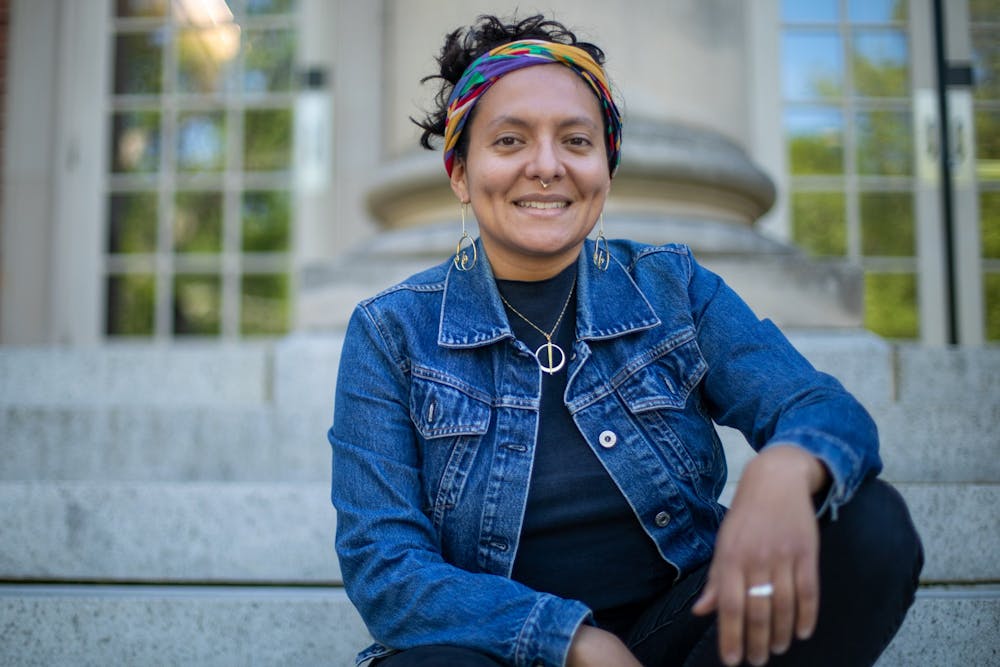Wagner said the purpose of the grant is to help students like Sanchez turn their project aspirations into a reality in a creative way.
“That chance to kind of share perspectives, I think is so important as a community, but also as individuals — that we find a place of greater understanding,” Wagner said.
The other two recipients of the grant are the future creator of “The Globalist” Catherine Haas, and the future creator of “Sensing Bodies in Common” Daniel Dilliplane.
Sanchez said that her mother and maternal aunt, Dina Jacks, accompanied by her paternal grandmother and great-grandmother, are the inspirations for her project.
Her mother and aunt, originally from Nicaragua, emigrated to Mexico in their early twenties to escape the political turmoil associated with the Sandinista government, which had come into power after the overthrow of the Somoza dictatorship.
The shift to the Sandinistas’ communist rule left Sanchez’s mother and aunt with few opportunities in Nicaragua, and so they made the decision to emigrate.
"There was some kind of national war inside the country," Jacks said. "And one day, you weren’t able to do anything. Nothing. Everything was closed. Just shooting and shooting. That’s all you hear everyday.”
They eventually moved to the United States.
On the other side of her family, Sanchez said her paternal grandmother and great-grandmother were forced out of France due to their Jewish faith during World War II.
Sanchez believes her family history has shaped her into the person she is today.
“What I really want to do with the larger piece is to parallel (my mother’s) forced migration with my grandmother and my great-grandmother’s forced migration out of France after World War II,” Sanchez said. “And so, I focus mostly on immigration and refugee stories, because my story is a story of forced migration.”
She hopes to incorporate recorded interviews and archival footage such as old photographs into her documentary. She also plans to include stop-motion animation to portray her mother and aunt’s journey across the Mexican border into the U.S. southern border in Texas.
To get the day's news and headlines in your inbox each morning, sign up for our email newsletters.
"I think her story is also just a really important one to have in general, and one that we felt was such a value add with the perspective that she wanted to take with her documentary using different techniques and kind of exploring immigration and how it’s represented in the media versus what doesn’t get covered," Wagner said.
Sanchez wants to present her film on campus and host a panel discussion about race and migration with immigration and refugee specialists in the fall.
She hopes to shed light on both the hardships and different shapes of the immigrant experience.
“I wanted to tell this story because I think it’s an incredibly nuanced issue,” Sanchez said. “People have to make these really hard decisions, and figuring out what’s the best thing for their future generations. And so I wanted to tell that story.”
@adelepmorris17
university@dailytarheel.com
CORRECTION: A previous version of this article incorrectly stated to the government that Sanchez's mother and aunt escaped political turmoil in Nicaragua. They fled due to political turmoil associated with the Sandinista government. The Daily Tar Heel apologizes for this error.



